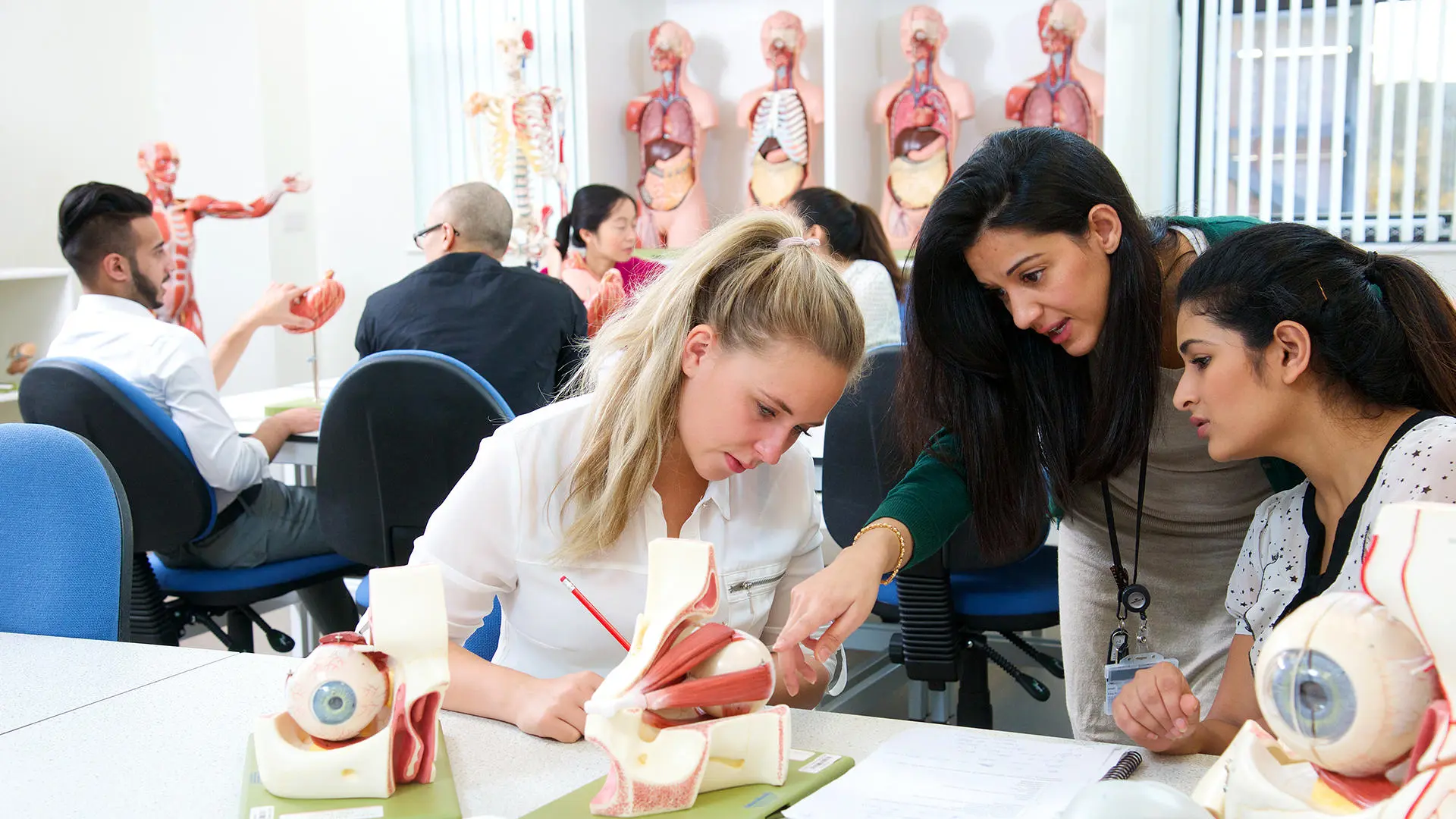If you've studied your medical degree in the UK, on a course like our MBBS programme, then you can return home to India and work as a medical professional. However, there are some things to be aware of and some processes to follow first.
Before you start
It's important to make sure you hold a medical degree from a school listed in the WHO International Directory of Medical Schools. You can search for your school using their website. If you hold a degree from a school that isn't listed, then it is possible you won't be able to practice as a doctor in India.
If you're yet to begin your application to a UK medical school, then you should be aware of certain requirements needed to start you studies. Check your chosen medical school's course page for specific international entry requirements.
The criteria listed in this guide to return to India as a doctor applies only to Indian citizens and Overseas Citizens of India (OCIs).
Routes to working in India
There are two routes you can take depending on how far through your studies you are in the UK:
MBBS only pathway
If you complete your MBBS degree in the UK and return to India without having fully studied your foundation years (FY1 & FY2) or any postgraduate speciality degree, then this is the following to take:
- Qualifying for the licensing exam (FMGE & NExT)
- Completing a 12-month internship
- Specialty training & full registration
UK postgraduate degree pathway
If you complete your MBBS course, foundation years (FY1 & FY2) and speciality postgraduate training in the UK, then your route is different:
Qualifying for the licensing exam (FMGE & NExT)
In order to return to India to work as a doctor you need to pass an exam to earn your medical license. This exam is known as the Foreign Medical Graduates Examination (FMGE). The FMGE is sometimes referred to as the screening test.
You will need to take the FMGE exam if you completed only your undergraduate degree in the UK. If you completed postgraduate speciality studies in the UK then you will not need to take the FMGE as you will already meet India's National Medical Commission's healthcare criteria.
The FMGE assesses whether medical graduates who studied overseas have the knowledge, skills and experience required to meet India's medical practice and healthcare standards. The exam takes place twice a year, and can be attempted multiple times until you pass. You should also be aware that there is a registration fee for taking the exam, and that the pass rate is often quite low - around 20-25%.
When you pass the FMGE, you can apply for a provisional registration with India's National Medical Commission (NMC), and with any Indian State Medical Council. You can use this provisional registration to move onto a permanent registration and become a registered healthcare professional.
Completing a 12-month internship
Once you have secured your provisional registration, you will need to complete a mandatory internship. You will only be eligible for this internship after passing the FMGE exam and earning provisional registration.
This internship is known as a Compulsory Rotating Medical Internship (CRMI).
Your internship will have you studying for a year at National Medical Commission approved hospitals. You will gain further practical skills and put your knowledge to the test. You will get real hands-on experience working in an Indian healthcare environment.
Apply for full registration
After completing your internship you'll be able to apply for full registration with the National Medical Commission and a state council. You will no longer hold a provisional registration and, as such, will be fully registered to practice in India.
Speciality training
After earning your full registration you should look into postgraduate speciality training. In India, this is called completing a residency. Speciality training refers to further postgraduate study to specialise in a field of medicine you are interested in.
In order to secure a place on a postgraduate medical course in India you need to complete an exam called the NEET-PG (National Eligibility cum Entrance Test - PG). Passing the NEET-PG will secure your place on a postgraduate course in medicine. This allows you to study for a postgraduate medical degree in your chosen specialist field.
Returning to India with UK postgraduate qualifications
Holding a recognised postgraduate qualification in medicine from the UK will allow you to apply for full registration in India. You do not need to sit the FMGE exam, or complete the 12-month internship.
This is because India's National Medical Commission recognises UK postgraduate medicine degrees.
This applies to postgraduate degrees such as MD (Doctor of Medicine) and MS (Master of Surgery).
Membership of the Royal College of Physicians and Membership of the Royal College of Surgeons are also recognised within India and can lead to better job opportunities back home.
If you're currently studying your undergraduate degree in the UK, it might be worth thinking about completing further postgraduate studies too. The FMGE exam can be very difficult to pass, and the only way to skip it currently is to hold a postgraduate medical degree from the UK, USA, Canada, Australia or New Zealand.
